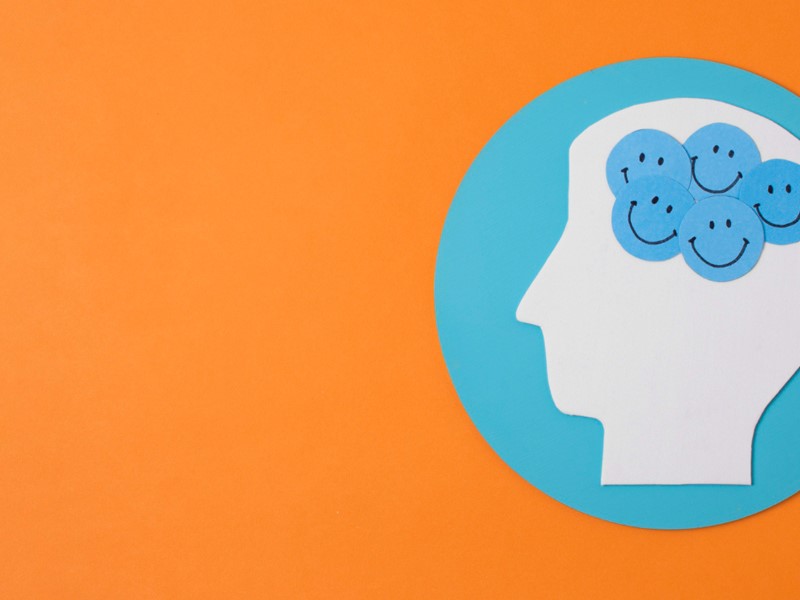Admission Line (866) 396-3655
The Science Behind Happiness: Healing Your Brain Through Addiction Recovery

The impact of addiction on both the body and the mind should not be underestimated. Addiction has a profound effect on the brain’s ability to regulate moods, make decisions, and maintain emotional stability. As presented in the blog post “The Science of Addiction,” substance abuse alters how the brain functions, which can make it difficult to feel joy, manage stress, or even think clearly.
Addiction recovery, however, doesn’t just end substance use; it also supports brain healing, improving your ability to feel happiness and to live with emotional well-being.
Recovery can help the brain rebuild and rewire itself, restoring key processes like dopamine regulation, emotional control, and decision-making, and can also support healing from the mental and emotional damage that addiction often leaves behind.
Addiction’s Effects on the Brain
Addiction can massively alter normal brain function, hijacking key parts of the brain and making it harder to quit using an addictive substance, even as the consequences of substance use become more severe. Consider addiction’s effects on these aspects of the brain:
Dopamine Balance
Dopamine is the chemical associated with pleasure, motivation, and reward. Drugs and alcohol tend to flood the brain with dopamine, which creates initial euphoria. However, as your brain becomes used to such dopamine intake, it produces less dopamine naturally and becomes used to the flood caused by substance use, which can make everyday activities like eating, exercising, or socializing no longer enjoyable. The substance can become the only thing that causes the dopamine hit your brain craves.
Prefrontal Cortex
This part of the brain is vital for decision-making, impulse control, and long-term planning. Addiction weakens your prefrontal cortex, impairing judgment and increasing impulsive behavior, making substance use likely even if you recognize the harm that such use causes. Addiction isn’t just a battle of willpower; it’s a true brain-based disorder.
Regulation of Emotions
Drugs and alcohol can interfere with your ability to regulate emotions, leading to mood swings, anxiety, depression, and difficulties managing stress. This can lead to a vicious cycle of using substances to address emotional toil caused by substance use.
Brain Pathways
Addiction reshapes your brain’s pathways, building a stronger association between substance use and reward sensations. As such, psychological triggers are more likely to cause strong cravings, which can eventually become a higher priority than healthy behaviors and goals.
Toward Improved Brain Health
Recovery from addiction can allow your brain to truly begin to heal. It takes time, but the process can lead to major improvements in brain health and emotional well-being. Such improvements can be supported by sustained sobriety and therapeutic care.
Regained Dopamine Balance
As you recover, your dopamine production can begin to normalize. You can start to feel joy and satisfaction in everyday activities again, recovering your brain’s natural reward system significantly over time and with continued sobriety.
Prefrontal Cortex Repair
Your prefrontal cortex can regain function as you continue to abstain from substance use. Over time and with the help of cognitive behavioral therapy, decision-making skills can return, impulse control can be improved, and coping mechanisms can regain function. As a result, the ability to make better long-term decisions much more easily can help someone in recovery avoid relapse.
Improved Regulation of Emotions
Your emotional stability can begin to recover, too. Effective approaches can include mindfulness practices, journaling, and emotional regulation techniques to reduce anxiety and depression. With the help of therapy, support groups, and health habits, you can manage your emotions without relying on substances. As a result, you can learn to respond to life’s challenges in healthier ways.
Enhanced Neuroplasticity
Neuroplasticity is your brain’s ability to adapt and grow new neural connections. Through recovery, your brain can begin to replace destructive thought cycles with more positive ones. Learning new behaviors, developing routines, and therapy can all enhance neuroplasticity, strengthening your brain’s ability to change, which can make a healthier and more fulfilling life easier to accomplish.
Services from Jackson House Recovery Centers
At Jackson House Recovery Centers, we provide comprehensive addiction treatment for both mental and physical healing.
We treat a wide range of addiction types, including addiction to alcohol, opioids, stimulants, and prescription medications. Our team can provide effective treatment with offerings that include medical care, therapy, and holistic wellness, promoting long-term recovery and brain healing. Every program offers a tailored approach, meaning that your individual needs are addressed.
Ongoing Addiction Recovery Support
There are resources and approaches that can support ongoing addiction recovery. Following is information on our aftercare program, mindfulness, and self-care, including information on a weekly self-care checklist to help support ongoing wellness.
Aftercare Program
Your recovery isn’t over after you complete your treatment program. We offer ongoing support through a comprehensive aftercare program, which includes outpatient therapy, group meetings, relapse prevention planning, and continued access to mental health support. Our long-term recovery services are available to support successful transition from rehab to life following residential treatment.
Mindfulness and Self-Care
Mindfulness and self-care are two key components of long-term sobriety. Mindfulness encourages you to stay present, manage stress, and respond to emotions healthily. Self-care involves prioritizing activities and habits that support health for the mind and body. Our ”Weekly Self-Care Checklist” outlines a host of practical steps to help you meet your needs and strengthen your chances of long-term recovery.
Addiction Recovery Services Near You
Addiction recovery is more than just the cessation of substance use; it’s a transformative recovery that can heal the impacts that drugs and alcohol have had on your life and mental health. Healing the brain, restoring your emotional health, and rediscovering joy are possible, and we’re here to help. Connect with services from Jackson House Recovery Centers that can positively impact brain health and overall happiness.
